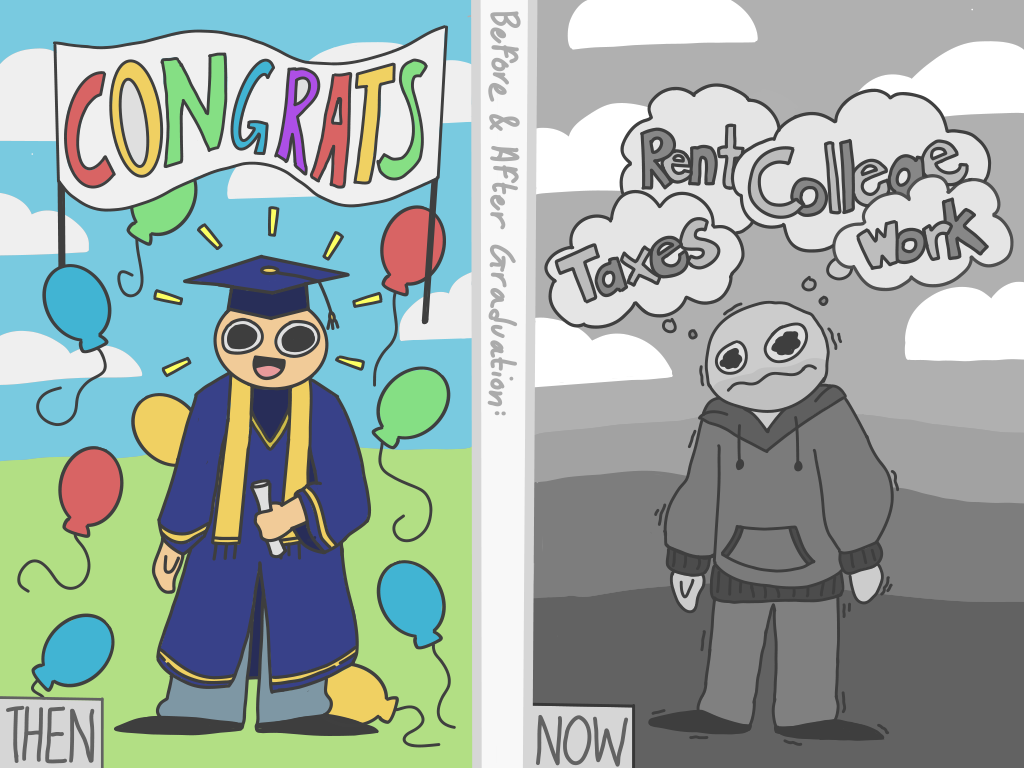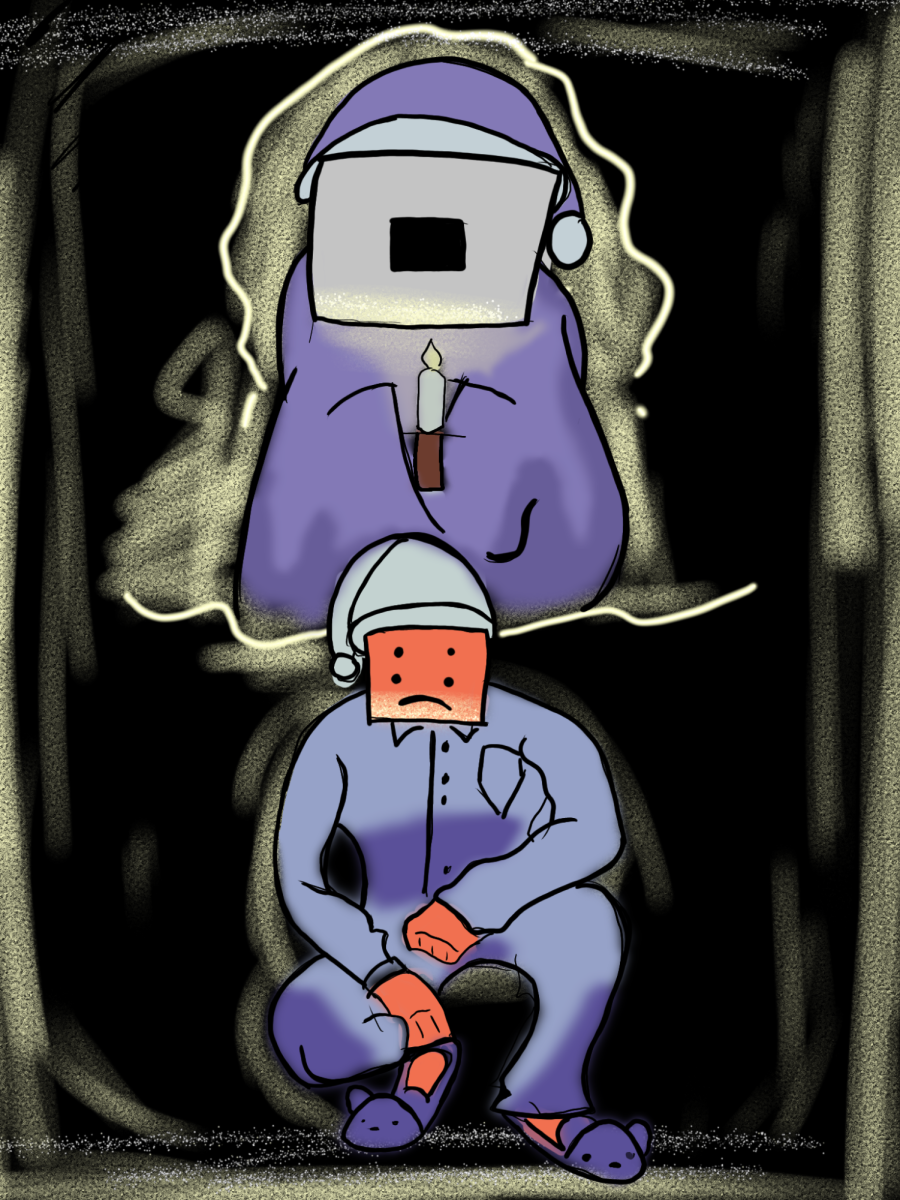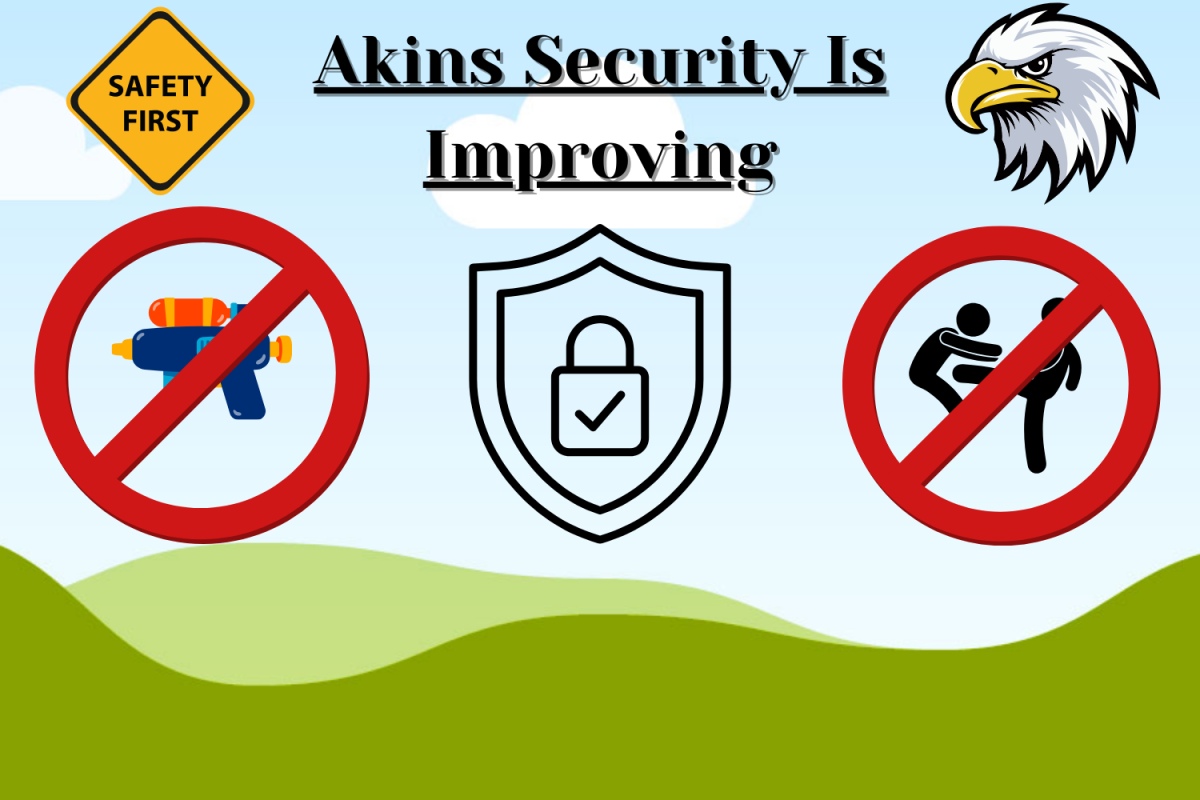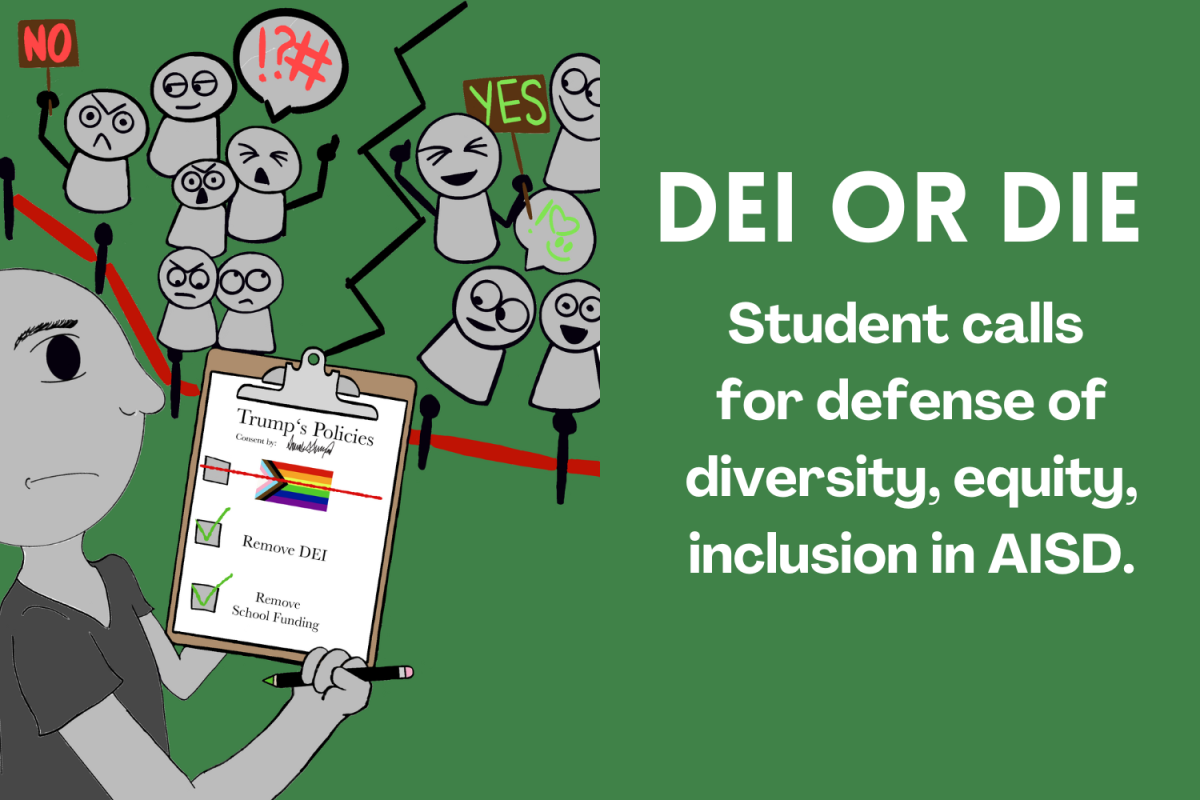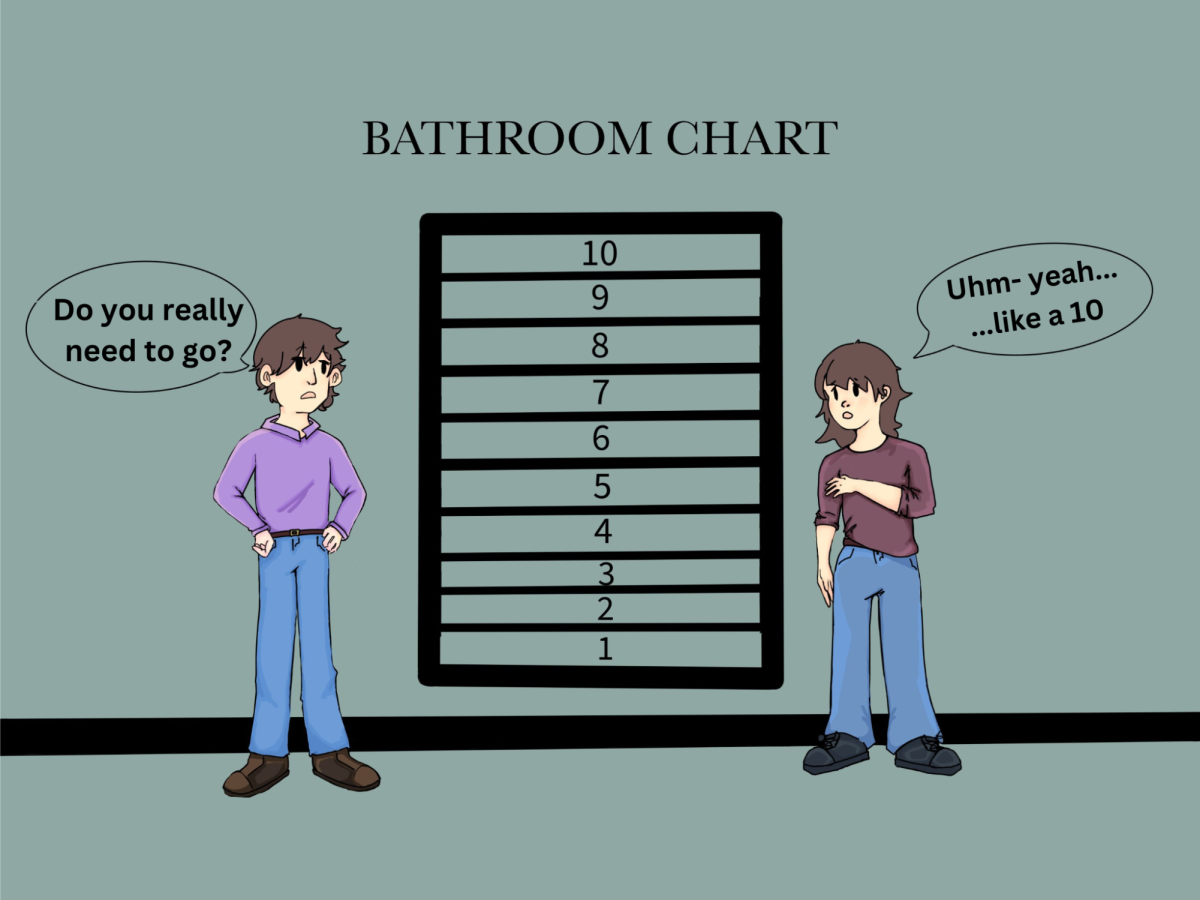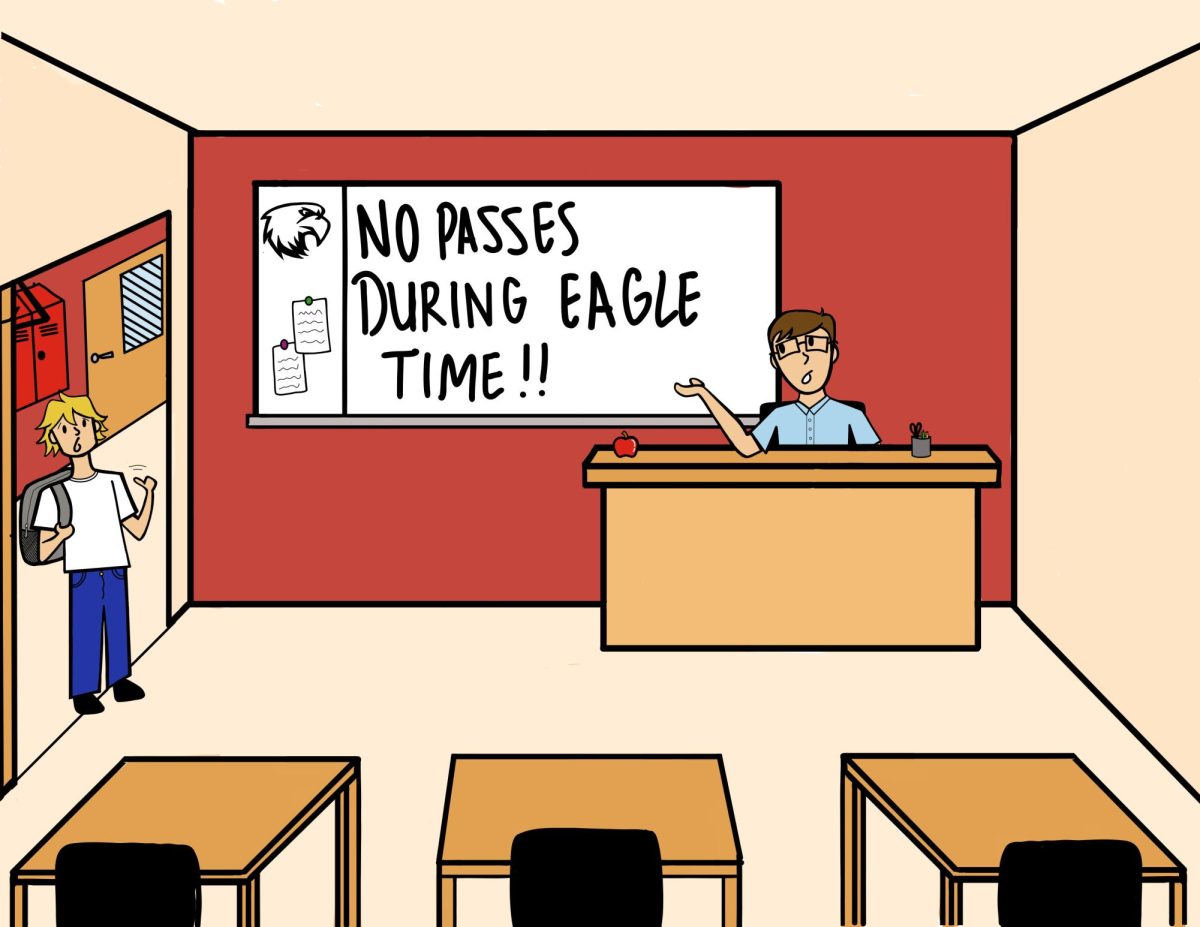As seniors approach the end of their final year of high school, many things feel up in the air as they wait for that moment when they walk across the graduation stage. This is stressful when thinking about the next steps they will have to take into adulthood. Akins does have resources such as the College and Career Center and Student Support Services, but not every student knows how to utilize these resources. To gain perspective we interviewed a variety of students as well as a staff member to understand the attitude of our senior class and how supported they feel going into life post-graduation.
Senior Interviews
EE: Have you felt supported by Akins in preparing for what you’ll do after graduating?
Senior 1: Yes, but I feel like they provide a lot of options but don’t push any bigger (or more prestigious) schools, and they don’t support you much unless you’re deciding to go to college.
Senior 2: Yeah, when I take initiative and go to my counselor, they’re super helpful.
Senior 3: Yes somewhat, but at the same time I’ve noticed how hard it is for myself and other students in general because they feel scared to reach out.
EE: How have you felt supported?
Senior 2: When I was talking to my counselor about my EOC from freshman year, they helped get that fixed with me so I could walk the stage.
EE: What could the school do better in terms of preparing seniors for life after graduation?
Senior 2: I think they could do better at giving students details from the get-go instead of springing things onto us around graduation.
Senior 3: I think it’d be good to have therapists on campus, available for students and especially seniors.
EE: Are you interested in receiving counseling after graduation? Would you know how to access it if you needed to?
Senior 1: I’d say maybe I would, but I don’t know where to access it.
Senior 2: Yeah, I think everyone could benefit from counseling (post-graduation), but no, I don’t know how to access it.
Senior 3: I think that counseling could be helpful, although not always necessary it could be needed for emotional reasons. If I’m being completely honest I have no idea how to find it on my own.
Junior Interviews
EE: What do you worry about facing post-graduation?
Junior 1: I worry about life problems such as being a trans person living in Texas, or the housing market.
Junior 2: I worry about the future and what I’m going to do.
EE: Would you be seeking counseling post-graduation?
Junior 1: Not exactly, but I know of places to go (such as Planned Parenthood, among other organizations).
Junior 2: Most likely not because of the cost, but if I could then I would need help finding one.
Teacher Interview
EE: How could Akins better prepare students for life after high school?
Math teacher: I think a way that schools can help with that is to have individual classes about mental health… we talk about physical health and psychology but not personal mental health or self-care as much. I also believe that diversifying the counselors who serve so many students could make those students more open to seeking counseling.
Through these interviews, it is clear that our Seniors are aware of the resources available but find it difficult to access them without any help for post-high school coping mechanisms. We want to better prepare our students to be able to go forward with a positive mindset on entering adulthood and life after school. For students to go from being in school a third of the day with the same people and same routines, to suddenly making their schedules and dealing with their affairs is stressful and a lot to take on in a setting where you may feel more alone. In order to give our students access to some of those helpful resources and find alternative ways to receive assistance that aren’t generally promoted, Raven Martin has compiled a list of resources for helpful organizations.
All of these organizations offer a wide range for almost anything. Under 18; homeless; pregnant; LGBTQIA+; sexual assault; substance abuse; grief; depression; PTSD; etc.
Texas Network Of Youth Services
For any crisis at any time, text or call:
(Press 1 for English, then 1 for mental health crisis support)
512-472-HELP (4357).
Toll Free: 844-398-8252
TTY: 512-703-1395


